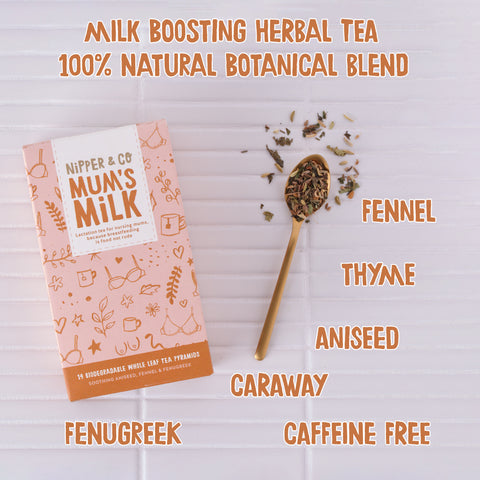Science behind raspberry leaf tea in birth preparation and women's health
Raspberry leaf has been used for centuries as a herbal remedy for various women's health concerns. While much of its traditional use is based on anecdotal evidence, there is growing scientific interest in understanding the potential mechanisms behind its benefits. Let's delve into the science behind raspberry leaf and its connections to women's health.
-
Uterine Toning and Labor Preparation:
One of the key areas of interest regarding raspberry leaf is its effect on uterine muscles. Studies suggest that raspberry leaf contains compounds called fragarine and tannins, which have been found to possess uterine relaxant and toning properties. The fragarine component specifically targets the smooth muscles of the uterus, potentially enhancing the strength and coordination of contractions during labor. This mechanism may explain why raspberry leaf is often recommended to help prepare the body for childbirth and potentially reduce labor duration.
-
Hormonal Balance:
Raspberry leaf is rich in various nutrients, including vitamins (such as vitamin C, E, and B-complex) and minerals (such as calcium, magnesium, and iron), which play crucial roles in hormone production and regulation. These nutrients are essential for maintaining hormonal balance within the body, including reproductive hormones. By providing the body with the necessary building blocks for hormone synthesis, raspberry leaf may support overall hormonal health and contribute to fertility and reproductive well-being.
-
Antioxidant and Anti-inflammatory Properties:
Raspberry leaf is abundant in antioxidants, including flavonoids and phenolic compounds. Antioxidants help protect cells from oxidative stress and the damaging effects of free radicals. The presence of these compounds in raspberry leaf suggests potential anti-inflammatory effects, which may be beneficial for managing menstrual cramps and reducing inflammation associated with premenstrual syndrome (PMS). By mitigating inflammation and oxidative stress, raspberry leaf may alleviate discomfort and promote a healthier menstrual cycle.
-
Nutritional Support:
The nutritional composition of raspberry leaf is worth highlighting as well. Its high mineral content, including calcium and magnesium, is beneficial for bone health and muscle function. Iron is essential for blood production and helps prevent anemia, a common concern for women. Vitamin C, an antioxidant found in raspberry leaf, supports immune function and collagen synthesis. These nutrients collectively contribute to overall well-being and can indirectly impact women's health, supporting various bodily functions necessary for optimal reproductive health. (nutrition information just FYI not to be share don socials solely)
While research on raspberry leaf's specific effects and mechanisms is ongoing, the available evidence suggests that this herb holds promise for women's health. It is important to note that individual experiences may vary, and consulting with a healthcare professional before incorporating raspberry leaf into your routine is advised, especially during pregnancy or if you have specific health conditions.
In conclusion, the science behind raspberry leaf highlights its potential uterine toning properties, hormonal support, antioxidant and anti-inflammatory effects, and nutritional benefits. These aspects collectively contribute to the herb's potential connection to women's health, including birth preparation, hormone balance, and managing menstrual discomfort.
Science based research and studies done on raspberry leaf for birth preparation and woman's health
Here are a few notable studies:
-
Study on the Effect of Raspberry Leaf on Labor and Birth Outcomes:
A study published in the Journal of Midwifery and Women's Health in 2001 examined the effects of raspberry leaf on labor and birth outcomes. The study involved 192 low-risk pregnant women who were randomly assigned to receive either raspberry leaf tablets or a placebo. The researchers found that women who consumed raspberry leaf had a shorter second stage of labor compared to those in the placebo group.
-
Survey of Women's Experiences with Raspberry Leaf Tea during Pregnancy:
A survey-based study published in the Australian College of Midwives Journal in 1999 explored the experiences of 108 women who consumed raspberry leaf tea during pregnancy. The results indicated that many women found raspberry leaf tea helpful in preparing for childbirth. They reported positive experiences, including easier and shorter labours, reduced need for medical interventions, and overall satisfaction with their birth experiences.
-
Evaluation of Raspberry Leaf Tea for Pre-labor Pain Relief:
A small-scale study published in the Journal of Midwifery and Women's Health in 2001 examined the potential pain-relieving effects of raspberry leaf tea. The study included 15 women who consumed raspberry leaf tea in the weeks leading up to labor. The findings suggested that raspberry leaf tea might possess mild analgesic properties, reducing pre-labor pain.



